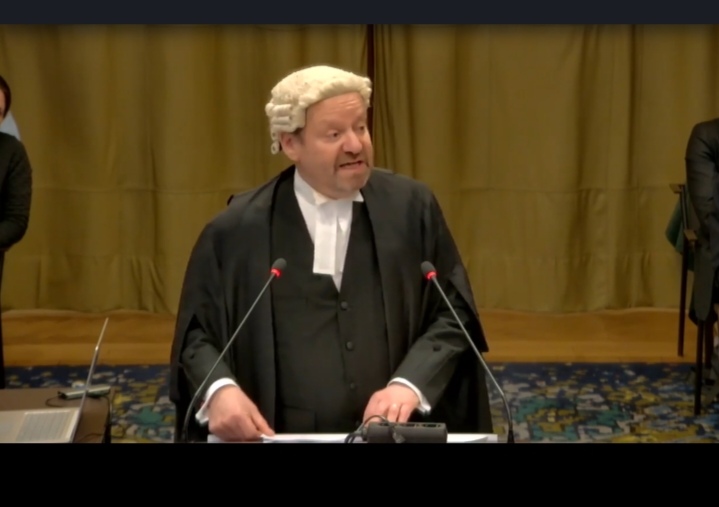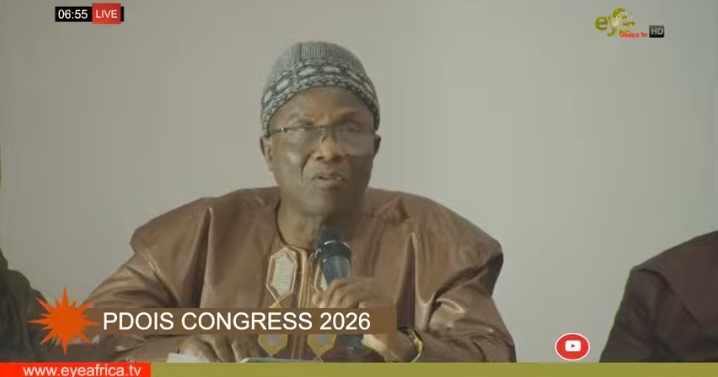By Sheriff Saidykhan
The political, and religious differences has for the past years been unabated in the country. The political division has sifted into tribal, and individual prejudices.
Many political parties are not schooling their party supporters into the political veranda, for them to be politically informed on the political administrative life of the country.
President Barrow, on the other hand is facing many issues at different times. His re-election was greeted with mix reactions.
A former political school boy, and Assistant Treasurer of the United Democratic Party (UDP) turned President, is increasing the political flames; verbally attacking legends of different political parties at different times.
The significant timeline for Adam’s Presidency, is for him to work tenaciously, and leave an indelible footprints into the nation’s highest political office.
Adam’s need to reform himself politically, and work towards formulating many institutional policies for the development of the country.
Politics looks at the application of power, allowing citizens to chart policies of the State towards holding the duty bearers both private and public accountable.
Plato and Socrates were among the first great Political thinkers and Philosopher’s of Athens. The duo provided useful theories for political discourse.
Many people inwardly perceived politics as “dirty”. For them, politics has retarded the country without registering any significant developments in their various metropolitan areas.
The social media WhatsApp platforms has turned into a new political hybrid ground for many people in the country, engaging into verbal attacks. The country faces lot of unresolved task at hand.
Hitherto, many families still cannot afford three square meals a day, due to periodic price hikes of basic commodities in the country.
When citizens are mired into emotions in politics, motions of emotions are left into irrational territories of political discourse.
Another unrealistic version of the nation divide; is the Orthodox Sunnis and the Pseudo Wahhabia Sunnis, arguing into the Sunni creed.
The Sunni Creed: The word Sunni is derived from the word Sunnah, meaning deeds of Prophet Muhammad (SAW).
The Pseudo Wahhabia Sunnis believes they are the true carriers of the Sunnah of Prophet Muhammad, accusing the Orthodox Sunnis of practicing Bid’ah.
Many countries are advancing towards producing scholarly materials for their students, whilst people are still arguing into the Sunni creed in the country.
Over fourteen hundred years ago, Islam has still been in its pristine uniqueness. For example the Qur’an was first Inscribed from Lauh-ul-Mahfús, and Surah upon Surah were revealed to Prophet Muhammad (SAW), accompanied with intensive network of security from the heaven in order to prevent Satan from eavesdropping.
Abu Bakr Siddiq, prepared the canonical copy of the Quranic scriptures, calling reciters among the Companions who committed it to memory the Surah’s of the Holy Quran to bear witness of the authenticity of each chapter.
The five tabernacle pillars of Islam, which includes 1. Confession to Allah and His Messenger Muhammad (SAW) the last Prophet to all mankind. 2. Establishing prayers 3. Give alms to the poor 4. Compulsory fasting during the Holy month of Ramadan (as decreed) 5. Pilgrimage to Makkah (when affordable). These five tabernacle pillars serves as a guiding faith for mankind.
In the aftermath of the revelation of the Holy Qur’an, the book that followed was Sahih Al-Bukhari and then Sahih Muslim. Scholars adopted their works because of its rules and methodologies, for the validation of Hadīth.
Abu Huraira was the most prolific narrator of Hadīth, among the Companions of Prophet Muhammad (SAW). He spent four years with Prophet Muhammad (SAW), and became his strong disciple.
Young Companions like Ibn Umar, Ibn Abbâs, Jâbir and Anas narrated Hadith through the authority of Abu Huraira. Abū Huraira, was also onetime appointed as the governor of Madinah, during the reign of Marwân bin Al-Hakam.
According to Imam Bukhari, one of the Tâba ‘în’s (followers of the Companions). One of his students Hammâm bin Munabbah, scribed down all the narrations of Abû Huraira.
Many Orthodox Sunnis in Africa followed the true history of Islam from the (four school of Islamic jurisprudence) and Hadīth scholars.
Hadīth in Arabic technical terms means; deeds, utterances, circumstances and matters of Prophet Muhammad (SAW).
The scientific method of Hadīth (Asmâ ‘ur-Rijâl)- biographies of narrators: holds a significant position in Hadīth Science.
One German Orientalist Dr. Springer, when editing the book: (Al-isâbah fi Tamizis-Sâhabah) attributed that “No nation in the past or in modern times ever invented an outstanding science like Asmâ ‘ur-Rijâl that provides information about five hundred thousand Muslims”.
Hadīth scholars played an important role for the authentic preservation of Hadīth. Many hypocritical Muslims attempted to fabricate the authentic Hadīth, but all their efforts were spotted out like counterfeit monies are detected in the market.
The renowned Orthodox Sunni scholar by the person Sheick Seedia Darboe, has published many scholarly work for the guidance of the Ummah.
The late Orthodox cleric, has devoted his entire lifetime to Allah, coupled with his immense love to Prophet Muhammad (SAW).
A friend confides to me that, most of the Pseudo Wahhabia Sunnis chose their various individualistic route towards seeking support from many Arabic countries for the survival of their Wahhabia Sunni creed.
The abiding impression of the Wahhabia Sunni creed, has led many young Wahhabis towards falsifying the “Karama” or miracles of many late Orthodox Sunni scholars in Africa.
Imam Ibn Hajar Al-Asqalani, was regarded the greatest Hadīth scholar. He was Born in Egypt in 773, his family originated in the district of Qābis in Tunisia. He died in 852. His funeral was attended by fifty thousand people including the Sultan of Egypt.
His great book (Fath-ul Baari) is still widely credited among many eminent scholars for its doctrinal soundness, completing the entire coverage of Bukhari’s material.
The past Orthodox Sunni scholars in Africa have endeavoured for the preservation of the true history of Islam, through meticulous, systematic and methodological means towards guiding Muslims in the right teachings of Islam and the Quran.
The seeming confrontational counter discourse on the Sunni creed, has left vital room of Islamic topics and leading many towards a virtual terminal disaster.
Divisions of believes can be normal in any circumstances. But subscribing and holding to the right one, will surely lead you into a safer world from darkness.
I hereby implore intellectuals to start writing historical facts, because only written materials will remain in this world!
Below are the list of Orthodox Sunni scholars along with their names and books warning Muslims against the Pseudo Wahhabia Sunni poison.
Shaykh Hasan: “Al-magalat al-wafiyyat fi al-radd ala al-wahhabiyyah” (Complete Treaties in Refuting the Wahhabis)
Muhammad Hasanayn: “Risalat fi hukm al-tawassul bil-anbiya wal-awliya” (Treaties on the Ruling Concerning the Use of Prophets and Saints as Intermediaries)
Al-Mirghani al-Ta’ifi (1793) “Tahrid al-aghbiya ala al-istighatha bil-anbiya wal-awliya” ( The Provocations of the Ignorant Against Seeking the Help of Prophets and Saints
al-Zahawi al-Bahhdadi, “al-fajr al-sadiq fi al-radd ala munkiri al-tawassul wa al-khawariq” (The True Dawn in Refuting Those Who Deny the Seeking of Intercession and the Miracles of Saints).
Author:
Sheriff Saidykhan, is the Managing Editor of The Outpost. He is also an Associate Fellow of “Maktab”, an Islamic research institute for Islamic scholars across West Africa.
Publisher’s Note
Views expressed herein are those of the author and do not necessarily represent the views of the publisher. Want to be a contributing author? Please email opmail220@gmail.com






